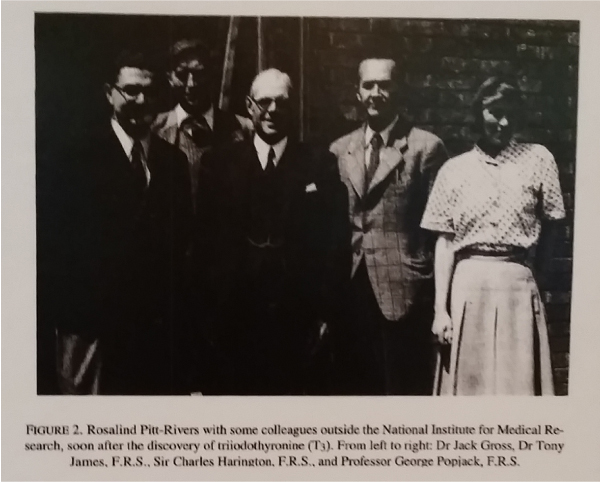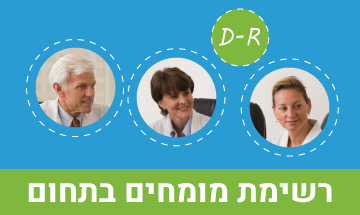Few Seniors With T2D Well Control Underwent Deintensification Treatment.
Among 211,667 seniors ages 70 and older with T2D successfully treated for blood pressure and/or glucose control, less than one-third underwent deintensification of treatment, representing a lost opportunity to reduce overtreatment, according to a study in JAMA Internal Medicine. Specifically, 1,226 had very low blood pressure (120/65 mm Hg or less), but only 19% underwent deintensification, and 12,917 patients with very low HbA1c levels (<6.0%), only 27% deintensified treatment. להמשך קריאה
Japanese Atomic-Bomb Attack Survivors With Low-Dose Radiation Exposure Appear Not To Have Greater Rates Of Thyroid Disease.
Survivors of atomic-bomb attacks Hiroshima and Nagasaki who received low-dose radiation from the blasts do not appear to have greater rates of thyroid disease than the general public, according to research presented at the International Thyroid Congress. Researchers arrived at that conclusion after reviewing outcomes on 2,668 subjects during the 2007-2011 period, all of whom were younger than 10 at the time. להמשך קריאה
Latency Of Radiation-Induced Thyroid Cancer May Last Longer Than 30 Years
The latency of radiation-induced DTC appears to last longer than 30 years, according to researchers in Ukraine, which bore the brunt of the Chernobyl nuclear catastrophe. At the International Thyroid Congress, Sergiy Cherenko, MD, said that the medical community anxiously awaited the 10 to 15-year post-Chernobyl presumed peak of thyroid cancer, especially among the children born from 1982-1986. However, when he and his colleagues looked at cases after that time frame, they observed no waning in the percentage of young children at the time of Chernobyl, developing DTC,להמשך קריאה
Cabozantinib May Benefit Patients With Refractory Differentiated Thyroid Cancer.
Findings presented at the International Thyroid Cancer congress indicated that most patients with differentiated thyroid cancer who had shown progression on previous courses of targeted chemotherapy either maintained stable disease or responded to the oral multikinase inhibitor cabozantinib (Cometriq).. להמשך קריאה
Insulin Not Associated With Increased CV Mortality In ACCORD trial
Research in Diabetes Care indicated insulin use not associated with increased CV mortality in the ACCORD trial. The insulin-treated patients in ACCORD had higher CV risk at baseline, including a higher HbA1c and a greater history of CVD, CHF and peripheral neuropathy. After adjusting for these baseline covariates, the apparent connection between daily insulin dose and cardiovascular risk disappeared. להמשך קריאה
FDA Approves First Treatment For Rare Bone Disorder.
The FDA approved Strensiq (asfotase alfa) from Alexion Pharmaceuticals Inc, as the first approved drug to treat perinatal, infantile and juvenile-onset hypophosphatasia. The drug was approved last month in Europe and in Japan in July. להמשך קריאה
FRAX Calculations May Fail To Identify Many Women Who Are Likely To Experience A Major Osteoporotic Or Hip Fracture During Next 10 Years.
FRAX calculations fail to identify many women likely to experience a major osteoporotic or hip fracture during the next 10 years, researchers concluded after analyzing seven longitudinal studies (n = 57,027). The meta-analysis were presented at The North American Menopause Society Annual Meeting. Using the current intervention threshold (20% for major osteoporotic fracture and 3% for hip), FRAX has low sensitivity (major osteoporotic fracture, 10%; hip, 45%) in predicting fractures within next 10 years.
להמשך קריאה
Denosumab For Aging Women With Osteoporosis Remains Favorable
New research presented at ASBMR 2015 showed that women on denosumab in the FREDOM study and its 7-year extension, did not see any alteration in the benefit/risk profile of the drug over the course of the whole trial. The study showed a cumulative gain in density of 21.7% at LS through the end of the trial concluding that benefit/risk profile for denosumab in an aging population of postmenopausal women remains favorable.
להמשך קריאה
FDA Declines To Approve Combination Diabetes Treatment.
The FDA declined to approve AstraZeneca’s new diabetes treatment that combines saxagliptin and dapagliflozin. In a letter to the company, the FDA requested additional data that could require additional clinical trials. להמשך קריאה





